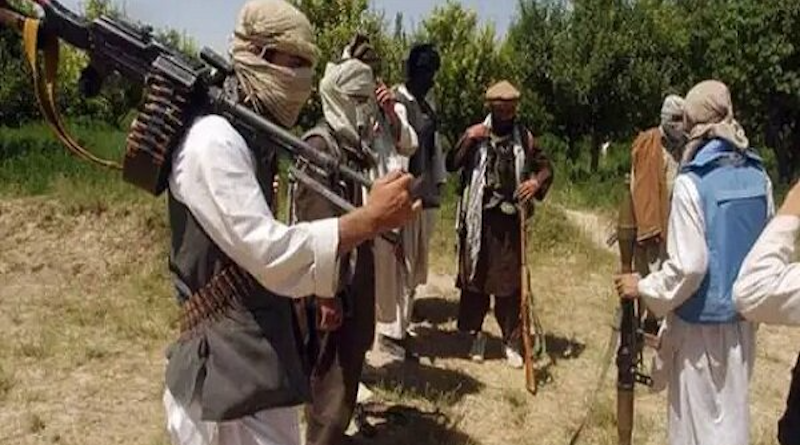Afghan Taliban’s Support For TTP And Its Implications For Regional Stability – OpEd
By Muhammad Arsalan Jamal Ghuri
The recent disclosures from the United Nations Security Council’s monitoring team have illuminated the alarming ties between the Afghan Taliban and the Tehreek-e-Taliban Pakistan (TTP). This association poses substantial threats, not merely to Pakistan but to the broader stability of South and Central Asia.
Since the Taliban’s takeover of Kabul in 2021, the international community has consistently warned the Afghan Taliban government about the resurgence of terrorist organizations within Afghanistan’s borders. Regrettably, the Afghan Taliban has not taken substantial action against these groups. As a result, these groups are now not only challenging the stability of Afghanistan but are also using Afghan soil to launch attacks against the interests of other nations. This inaction has heightened concerns about the revival of terrorism in the region. The UNSC’s 33rd report emphasizes the TTP’s activities in Afghanistan with backing from both the Afghan Taliban and Al-Qaeda.
The TTP, recognized as a regional threat, continues to perpetrate acts of terrorism across South and Central Asia. Its operations are being orchestrated from Afghanistan with the support and patronage of the Afghan Taliban. Al-Qaeda’s involvement in enhancing the TTP’s terrorist capabilities further complicates the situation. The collaboration between the Afghan Taliban and Al-Qaeda signifies a perilous alliance aimed at destabilizing the region. This support has grown significantly since 2021.
Significantly, the TTP operates under the alias Tehreek Jihad Pakistan, a name strategically chosen to divert attention from its affiliation with the Afghan Taliban. This relationship highlights the interconnectedness of terrorist organizations in the region and underscores the necessity for united efforts to combat their malevolent activities. The presence of Afghan citizens among the TTP ranks further emphasizes the transnational nature of this threat and implicates elements within Afghanistan in these activities.
Reports indicate that individuals like Hakeem al-Masri from Afghanistan’s Kunar province are actively involved in training TTP members for suicide attacks. This highlights the conducive environment within Afghanistan for nurturing terrorism and implicates certain factions within Afghan society in supporting these activities. The Afghan Taliban’s alignment with the TTP’s objectives exacerbates the security challenges faced by Pakistan and the broader region.
The supply of arms by the Afghan Taliban and Al-Qaeda to the TTP for cross-border attacks on Pakistani citizens and security forces directly threatens Pakistan’s security and stability. The merging of Afghan Taliban members into the TTP further blurs the distinction between these terrorist entities, emphasizing the need for decisive action against them.
Furthermore, Al-Qaeda’s provision of aid packages, vehicles, and armed fighters to the TTP underscores the depth of their collaboration. The Afghan Taliban’s financial backing of TTP leader Noor Wali Mehsud highlights the sustained nature of their support and the threat it poses to regional security.
The supply of advanced weaponry like M24 sniper rifles, M4 carbines, and night-vision devices by the Afghan Taliban to the TTP underscores the seriousness of the situation. Pakistan’s persistent calls for action against the TTP by the Afghan Taliban have largely been ignored, emphasizing the need for stronger diplomatic and security initiatives.
In conclusion, the Afghan Taliban’s support for groups like the TTP poses a significant threat to South Asia’s security and stability. The involvement of factions within Afghanistan and the collaboration between the Afghan Taliban and Al-Qaeda necessitates concerted efforts by regional and global stakeholders to address this threat. Agreements like the Doha agreement must be accompanied by concrete actions to prevent Afghan territory’s use for terrorism against other nations. Failure to comprehensively address this threat risks further destabilizing the region and amplifying the terrorist threat.
Pakistan has borne the brunt of this resurgence in terrorist activities. Its security forces are engaged in relentless efforts to combat these non-state actors to ensure regional peace. Thousands of civilians and law enforcement personnel have sacrificed their lives in this fight. It’s imperative for the international community to pressure the Afghan Taliban to cease their support for these non-state actors. The international community must also extend political, economic, and military support to Pakistan to bolster its counter-terrorism capabilities. Terrorism is a global menace, not confined to Pakistan alone. Therefore, defeating these groups requires collective action and support from other nations committed to eradicating terrorism from the region.

